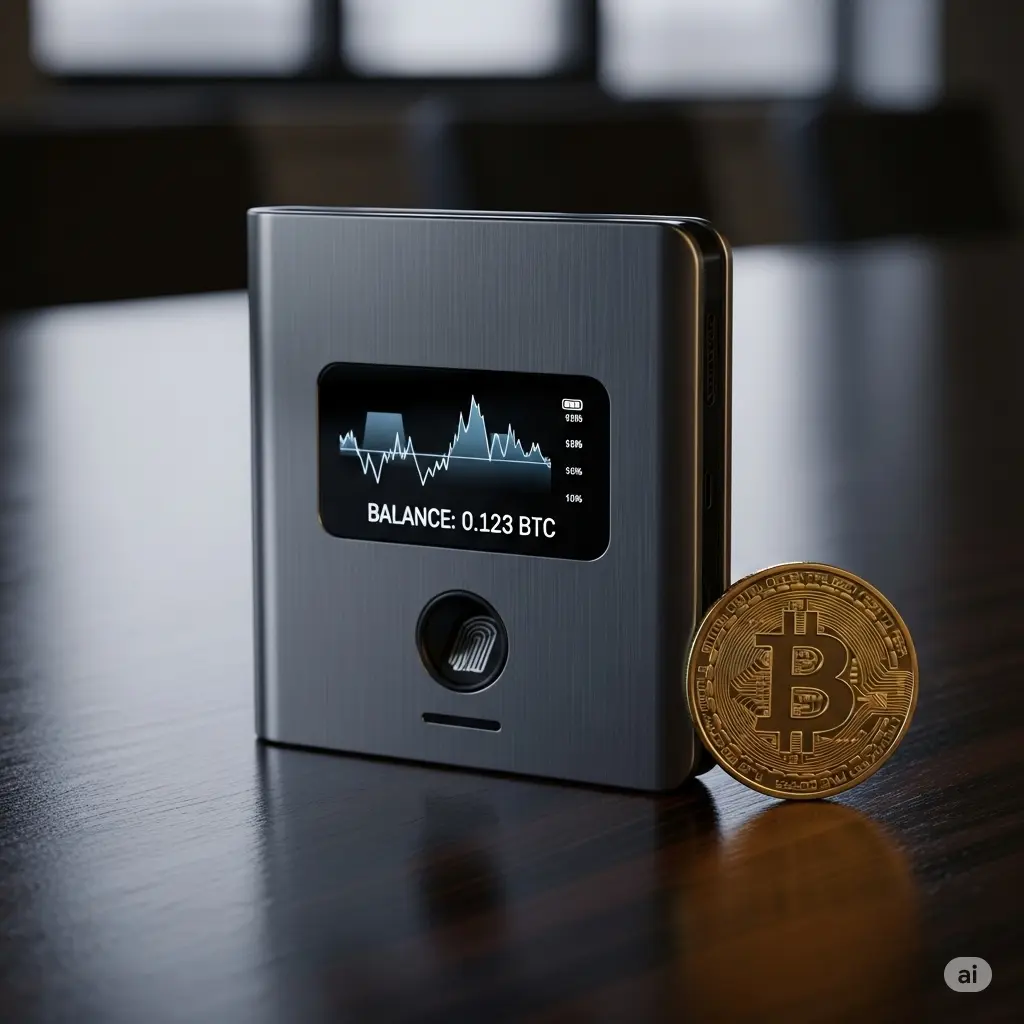Powerful Secure Crypto Wallet That Guards Your Wealth Instantly
Are you looking for a Secure Crypto Wallet that protects your wealth instantly? In today’s volatile crypto world, this need is more urgent than ever. Scammers, hacks, and phishing attacks grow daily. You need tools built for safety, ease, and control. That’s where a “Powerful Secure Crypto Wallet” comes in.
Global Crypto Sports, your go‑to news hub, alerts investors about rapid changes in crypto trends. With markets swinging unpredictably, securing your assets matters most. By learning about wallet types, best practices, and risks, you gain peace of mind. This guide breaks down everything you must know. It suits both crypto beginners and ambitious enthusiasts.
Let’s dive into the world of secure wallets, define key terms, explore real‑world examples, weigh pros and cons, and offer actionable advice.
What Is a Secure Crypto Wallet and Why Does It Matter
A Secure Crypto Wallet is software or hardware that stores your private keys safely. Your private keys give access to your cryptocurrency. If someone steals them, they steal your crypto. That is a tough but real risk.
Crypto wallets help you:
- Manage and transfer coins.
- Interact with decentralized apps (DeFi, Web3).
- Protect keys via encryption and backup.
With growing adoption of DeFi, Web3, and global digital finance, choosing the best crypto wallet in 2025 is vital. You want a wallet tailored to evolving threats and user needs.

Key Crypto‑Related Terms You Should Know
Even if you’re a beginner, these terms matter:
- Blockchain
A distributed ledger that records all crypto transactions. It’s tamper‑resistant and transparent. - DeFi (Decentralized Finance)
Financial services without banks. Lending, borrowing, and trading happen via smart contracts. - Web3
The next internet era. It uses blockchain and smart contracts to give users control over data and assets. - Hot Wallet
A wallet connected to the internet. Examples: desktop or mobile wallets. Fast access but more vulnerable. - Cold Wallet
A wallet is offline. This includes hardware wallets and paper wallets. More secure, less convenient. - Hardware Wallet
Physical devices that store keys offline securely. Examples: Ledger, Trezor. - Mobile Wallet
Apps on your phone. Convenient but riskier than cold options. - Decentralized Wallet
A wallet where only you control the keys. No third parties. - Wallet Backup
A copy of your keys or seed phrase. Essential to recover lost assets.
Understanding these helps you pick the right Secure Crypto Wallet for your needs.
Types of Crypto Wallets: Breakdown with Subheadings
Cold Wallets: Offline Security
Cold wallets stay disconnected from the internet. That reduces risk drastically.
Hardware Wallets
Hardware wallets are physical devices. They store your private keys offline safely. You sign transactions on‑device, not online. They protect against remote hacks.
Pros:
- Highly secure storage.
- PIN protection.
- Trusted by serious crypto holders.
Cons:
- Cost (around $50‑$150).
- Requires careful backup.
- Slightly less convenient for routine trades.
Examples: Ledger Nano X, Trezor Model T. Always buy from the manufacturer to reduce tampering risk.
Paper Wallets
You print your keys or seed phrase on paper. No digital storage means no hacking.
Pros:
- Free and offline.
- Simple, direct control.
Cons:
- Risk of physical damage or loss.
- Hard to use for transactions.
- Not user‑friendly for beginners.
Hot Wallets: Online Convenience
Hot wallets connect to the web. They offer speed and access.
Mobile Wallets
Apps on your smartphone. Examples: Trust Wallet, MetaMask Mobile.
Pros:
- Easy transactions.
- Supports DeFi, Web3 apps.
- Convenient interface.
Cons:
- Exposure to mobile malware.
- Risk when rooted or jailbroken.
- Requires a secure device.
Desktop Wallets
Software is installed on your PC. Examples: Exodus, Electrum.
Pros:
- Feature-rich.
- More space for transaction history.
- Safer than mobile (if the computer is secure).
Cons:
- Online exposure.
- Malware risk.
- Not ideal for quick access.
Web Wallets
Browser‑based platforms. Examples: MetaMask browser extension.
Pros:
- Access from any device.
- Easy integration with dApps.
Cons:
- Phishing risk.
- Browser malware hotspots.
- Browser updates can break wallet compatibility.
Decentralized Wallets
Decentralized wallets mean you, and only you, hold the keys. No third party manages your funds. This ensures full control.
Benefits:
- True ownership.
- Avoids custodial risk.
- Better privacy.
But with full control comes full responsibility. Always implement wallet backup, and protect your seed phrase.

Real‑World Case Studies
Case Study 1: Hardware Wallet Prevented Major Loss
In early 2025, a crypto investor received a phishing email. It mimicked his exchange’s login page. He nearly entered credentials. Luckily, he used a hardware wallet for withdrawals. The funds stayed safe because online credentials didn’t control his keys. Only physical signing did.
Case Study 2: Mobile Wallet Breach
A user downloaded a pirated mobile wallet app. It stole keys and emptied funds. This underscores the importance of using official sources and manufacturer‑backed wallets. Cyber threats lurk in unsecured app stores.
Case Study 3: Cold Wallet Theft
Someone kept a private key on a USB stick in a drawer. Fire damaged it, along with the stick. Without proper wallet backup, funds vanished. Always spread your backup across secure physical locations.
Pros and Cons Summary
| Wallet Type | Pros | Cons |
|---|---|---|
| Hardware (Cold) | Highest security, offline | Cost, setup, less instant access |
| Paper (Cold) | Free, offline, simple | Fragile, not user‑friendly, risk of loss |
| Mobile (Hot) | Convenient, fast, DeFi/Web3 access | Vulnerable to mobile malware, device compromise |
| Desktop (Hot) | Feature‑rich, larger interface | Online exposure, PC malware risk |
| Web (Hot) | Browser access, dApp integration | Phishing risk, browser‑based threats |
| Decentralized | Full control, no third‑party custody | Full responsibility, seed phrase risk |
Benefits of a Secure Crypto Wallet
- Protects your assets: With strong encryption and offline storage, you reduce theft risks.
- Keeps your funds private: Keys stay with you, so no third parties can access your crypto.
- Supports DeFi and Web3 safely: Hardware wallets can interface with smart contracts securely.
- Offers recovery paths: With proper wallet backup, you can restore access after loss.
- Encourages responsible investing: Knowing your wallet is secure builds confidence and control.
Potential Risks
- Seed phrase loss: Without backup, you lose funds permanently.
- Fake wallets: Downloading from untrusted sources can expose your keys.
- Physical damage: Cold storage mediums (paper, device) can degrade or break.
- User error: Wrong address, compromised PIN, or unsecured environment can cause loss.
- Updates and compatibility issues: Some wallets may fail after OS or firmware updates.
Always stay vigilant and double‑check processes.
Actionable Advice for Beginners
- Start with a hardware wallet: Get trusted brands like Ledger or Trezor.
- Save your seed phrase offline: Write it down on paper and store securely.
- Use a passphrase or PIN: Adds another security layer.
- Update firmware when available: Secure against known vulnerabilities.
- Only interact with trusted dApps: Beware malicious decentralized apps.
For Intermediate Crypto Investors
- Use a multi‑wallet setup: Spread assets across cold and hot wallets.
- Enable multi‑signature (multisig) wallets: Requires multiple approvals before sending funds.
- Use encrypted backups: Back up seed phrases in secure digital vaults.
- Practice test transactions: Send small amounts before large transfers.
- Use a separate computer/device for high‑value transactions: Limit exposure.
Why should I choose a Secure Crypto Wallet over exchange storage?
- Exchanges can be hacked or freeze withdrawals.
- You control your private keys.
- With your wallet, you can access funds, even if exchanges fail.
What is the best crypto wallet 2025 for new users?
- For new users, a hardware wallet coupled with a mobile companion app works well.
- Example: A hardware device with a mobile interface combines offline safety with convenience.
How do I pick between a cold wallet and a hot wallet?
- Think: security vs convenience.
- Cold: Maximum protection.
- Hot: Fast access.
- Use both for a balanced strategy.
What should I do if my wallet is compromised?
- Move funds to a new wallet.
- Check for malware on your device.
- Create new backups.
- Use fresh hardware or factory‑reset your device.
Frequently Asked Questions (FAQ)
Q1: What is a Secure Crypto Wallet?
A: A tool that stores private keys safely. It may be offline or encrypted. It secures your cryptocurrency.
Q2: Should I use a cold wallet or a hot wallet?
A: Use both. Cold for long‑term storage, hot for daily use or dApps. A hybrid approach balances safety and convenience.
Q3: What is the best crypto wallet 2025?
A: Security and usability matter most. A well‑known hardware wallet with frequent firmware updates and backup workflows qualifies. Choose a reputable brand.
Q4: How do I protect the wallet backup?
A: Write the seed phrase on durable materials. Store in multiple safe physical locations. Use encrypted digital backups if necessary.
Q5: What if I lose access to my wallet?
A: Use your backup phrase. If you lose both the device and the backup, recovery is nearly impossible. Always safeguard backups.
Q6: Can I use a mobile wallet safely?
A: Yes, with precautions. Use the official app, secure phone, avoid jailbroken/rooted devices, and enable a passphrase or biometric lock.
Q7: What is a decentralized wallet?
A: A wallet where only you hold private keys. It gives full control but requires responsible management and backups.
Conclusion
Every crypto investor deserves control, security, and peace of mind. A Secure Crypto Wallet delivers on all fronts. Whether you choose a hardware wallet, mobile wallet, or a blend of cold and hot storage, the key is safety with convenience.
At Global Crypto Sports, we share real‑time news, reviews, and strategies for crypto investors. This guide equips you with knowledge on wallet types, crypto wallet security, wallet backup, and risk mitigation.
Now it’s your turn:
- Choose your wallet wisely.
- Secure your seed phrase smartly.
- Stay updated on wallet innovations and hacks.
- Share this guide with fellow investors.
- Subscribe to Global Crypto Sports for the latest insights.
Invest wisely. Store securely. Control your crypto future.